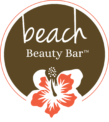Periods and Acne are a fact of life, as much as we don’t want them to be. AND…most of our clients who follow our simple nutritional guidelines sail through periods without a pimple! It’s true!
Oftentimes we hear the turn of phrase, “It’s just your hormones.” when it comes to acne breakouts. But what does that mean exactly? Do hormones have a direct effect on your period AND your pimples? The answer is, yes. In short, our hormones CAN in fact influence how acne shows up for us during that special time of the month.
If it feels like your skin breaks out more often than your boyfriend’s or your best male friends’, you’re not crazy. Hormonal acne is more common in women. There are several root causes that explain this very unfair fact of life.
The main one is the natural fluctuation of women’s hormones each month. While men’s hormones can also ebb and flow depending on what’s going on in their lives, women experience a more dramatic natural shift each month pegged to the phases of our menstrual cycles.
Hormones That Contribute to Periods and Acne
To be clear, we don’t want you to believe that you have a hormone imbalance just because you’re experiencing acne. Most adults have hormone levels in the normal range. However, during the prepubescent years, hormones change more drastically, and the skin becomes much more oily and prone to breakouts.
The key hormones that play a role in acne are:
Estrogen
Estrogens are reproductive and sexual hormones that are mainly present in females. It helps regulate your menstrual cycle, grow pubic and armpit hair, form bone, and develop breasts. When estrogen levels are too low or too high, your pores can widen and trap oils.
Progesterone
Progesterone is a female fertility hormone that’s generated in your ovaries every month. It’s crucial for menstruation and pregnancy. When your progesterone production is out of balance, your skin gets slick and oily, and your pores may swell and close off. The result is large cystic bumps that may take several days or a week or more to resolve.
Androgens
The most well-known androgen is testosterone, but both men and women have androgens. They’re critical for sexual health and influence your metabolism. High androgen levels can cause an increase in sebum, which makes your skin oily.
Insulin
Surges in insulin raise your androgen levels, which accelerates skin cell growth and puts you at risk for hormonal acne outbreaks.
Cortisol
Your body raises cortisol levels when it responds to stress or fear. Elevated cortisol aggravates your oil glands and hair follicles and puts your complexion at risk of a breakout.
Progesterone and Your Period Acne
So, how does progesterone cause acne? Progesterone is a hormone that plays an essential role in the menstrual cycle and pregnancy. However, when it comes to the skin, progesterone has been associated with increased oil production.
During the luteal phase in a female’s cycle (the cycle following ovulation), progesterone levels peak. Progesterone then stimulates sebum production which may then clog pores and trigger acne breakouts. However, it’s also the case that when progesterone levels in the body are low – the body will increase the production of other hormones such as androgens which also trigger acne breakouts.
Estrogen and Acne
What is estrogen?
Estrogen is the main female sex hormone responsible for puberty and developing feminine characteristics such as:
- Development of breasts
- Preparing the uterus for pregnancy
- Maintaining a healthy vagina
How does estrogen affect acne?
In the first half of your menstrual cycle, estrogen is predominant while progesterone is predominant in the latter half of the cycle. Fluctuations in estrogen levels occur during the menstrual cycle, where they drop off after ovulation. Estrogen helps in decreasing the effects of oil production on the skin. However, since the amount of estrogen required to suppress sebum productions is high, it may cause side effects that lead to acne.
Eating a Probiotic Rich Diet
People with acne may also have distinctly different gut bacteria than those without acne. One study found that acne was associated with gut dysbiosis, or an imbalance of gut bacteria, so balancing the gut flora could directly impact your skin. Not only does eating a probiotic rich diet help your gut and acne flare ups, but it also aids in support associated with period related irritability and pain.
Examples of foods that contain probiotics include:
- Kimchi
- Sauerkraut
- Pickles
- Miso
- Kefir
- Coconut Yogurt
The Takeaway
Period acne happens to many of us. Though it is mainly caused by hormones, with a few changes in hygiene and routines, it is possible to control these types of breakouts.
Battling acne breakouts requires a multifaceted approach, but you can always start with diet. Consider a hormone-supporting diet that eliminates offenders like high GI and inflammatory foods, sugar, alcohol, and dairy. Try adding nutrient-rich foods like colorful produce, whole grains, acne-safe nuts, and legumes to nourish you from the inside out.
Supporting your skin with the proper cleansers, serums and moisturizers will help get you clear during your menstrual cycle.
If you have any more questions about acne treatment options or how to support your cycle skincare routine, schedule an appointment and we will look at what your specific skin needs are.
Cheers to clear!
Rene

